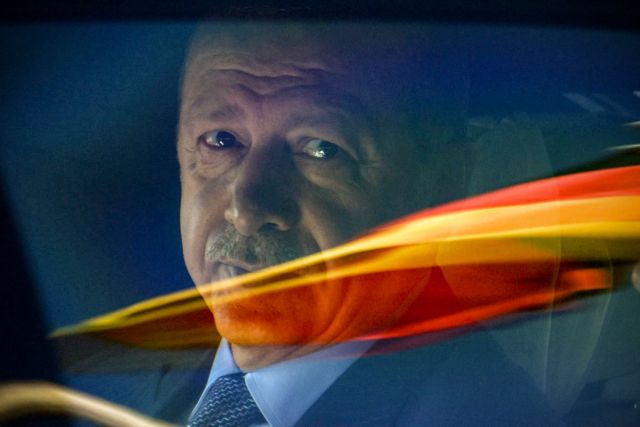
Editorial To Vima: Erdogan’s plans and the appropriate Greek response
It is no coincidence that Erdogan went as far as to declare that the Treaty of Sevres (which was never enforced) must be reversed, obviously in order to revive Ottoman influence in the broader region.
Undoubtedly Turkish provocations have a purpose and objectives.
They are part of a broader revisionist strategy – to review longstanding practices and treaties in the broader region that have been in force for a century.
It began with the invasion of Cyprus in 1974 and expanded with constant disputes of Greece’s sovereign rights in the broader region of the Aegean and southeastern Mediterranean.
In the current phase the Turkish leadership was encouraged by developments in Syria and by the administrative shortcomings of the great powers. Now it is dominated by a sense of expansionism aiming at a revival of Ottoman glory.
To this end it exploits exploration for large hydrocarbons reserves in the entire area once controlled by the Ottoman Empire.
Tayyip Erdogan believes it is time to claim from a position of strength the role of a great regional power.
He imagines himself as greater than Kemal Ataturk and capable of making Turkey big and strong.
With his actions, moves, and threats he not only confirms his revisionist strategy but supports it in practice.
The EEZ agreement with the unstable regime in Libya demonstrates that. This move threatens not only Greece and Cyprus It transmits to everyone – Israel, Lebanon, Syria, and to oil and gas giants – that Turkey will take the lion’s share and that without it there can be no distribution of the wealth.
It is no coincidence that Erdogan went as far as to declare that the Treaty of Sevres (which was never enforced) must be reversed, obviously in order to revive Ottoman influence in the broader region.
It is notable that all Turkish political forces are coordinated with his stance which means that this strategy is a national objective and not simply Erdogan’s vision.
Under these circumstances, it should be considered certain that he will make good on his threat to send oil and gas exploration ships southeast of Crete and in the sea zone of the Greek island of Kastelorizo.
That mean that possibly as soon as winter Turkey will challenge Greece’s sovereign rights in practice.
Greece will quite possibly be confronted with a de facto situation similar to what Ankara did in Cyprus.
Athens no longer underestimates Erdogan’s rhetoric and believes that they express his true intentions.
That is why the Greek government is raising diplomatic walls even as it clearly declares that Greece will defend its sovereign rights.
That is demonstrated in practice with the armed forces which answer every provocation. A large number of Greek war planes are sent to the Aegean as occurred in the last few days when six groupings of fighter jets were sent to deal with one grouping of Turkish war planes.
It is necessary that Turkey understand that any hostile action on its part will carry a heavy price.
That is the logic of deterrence which until now has not permitted Turkey to make good on its threats.
In such conditions Greece’s government must be prepared for all eventualities.
It must especially make clear that Athens is not playing around with issues of national sovereignty, and it should shape a similar climate among the Greek people.
Ακολουθήστε το in.gr στο Google News και μάθετε πρώτοι όλες τις ειδήσεις



![Σέρρες: Νυχτερινή επιχείρηση για να σώσουν μικρό άλογο – Είχε πέσει σε φρεάτιο [εικόνες]](https://www.in.gr/wp-content/uploads/2024/11/esosan-alogo-3-e1732517260298-315x220.jpg)







![Airbnb: Καλπάζει στην Αττική – Διπλάσιες κλίνες από τα ξενοδοχεία [γραφήματα]](https://www.ot.gr/wp-content/uploads/2024/07/airbnb-1-300x300.jpg)






























 Αριθμός Πιστοποίησης Μ.Η.Τ.232442
Αριθμός Πιστοποίησης Μ.Η.Τ.232442